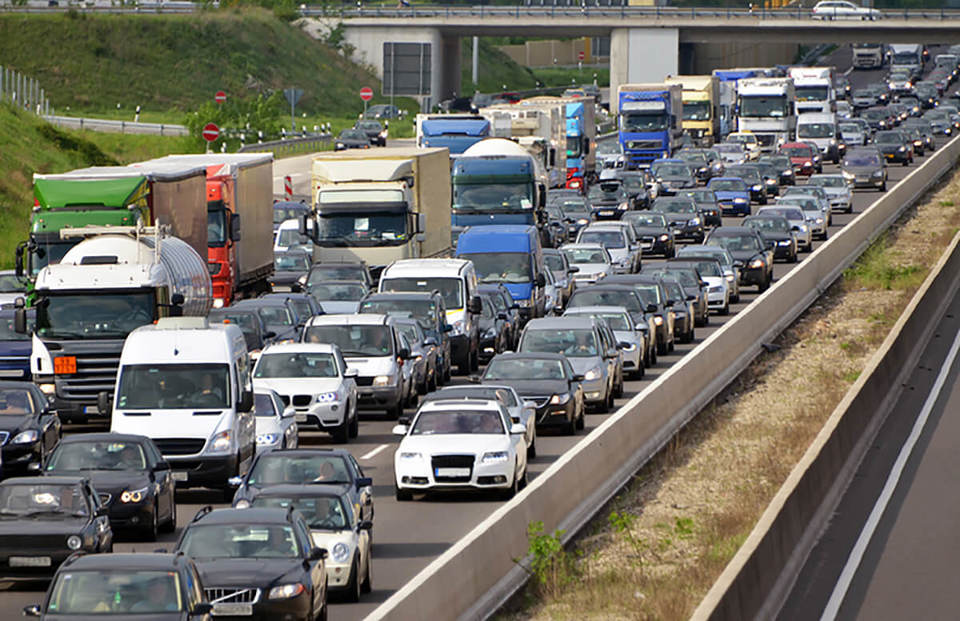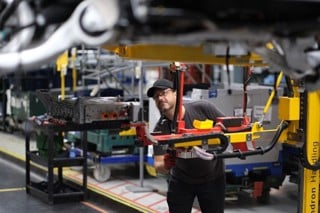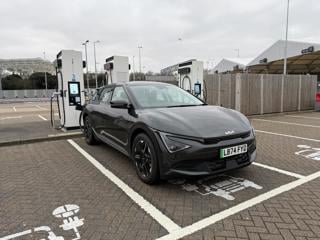The Government will need to significantly increase investment in the road network if traffic forecasts prove to be correct, MPs have warned.
But with the tax-take from motorists falling as more fuel-efficient vehicles are adopted, ministers will need to think of new ways to fund the work.
The Transport Committee says that could pave the way for the introduction of road user charging across the Strategic Road Network (SRN) as an alternative to road taxation.
However, it also understands that a consensus would have to be reached if road pricing was to be implemented.
The Department for Transport (DfT) predicts traffic levels on the SRN will rise 46% by 2040 and will increase by 19% from 2015 to 2025.
An advocate of road user charging, Professor Stephen Glaister, director of the RAC Foundation, told MPs on the committee that the Government faced a stark choice.
“We do not have the money to expand the road network in the way we want,” he said. “The only solution is to introduce road charging.”
The Chartered Institute of Logistics and Transport (CILT) took a similar view, arguing it could help manage demand on the road network during peak times.
Jim Coates, chairman of the road and traffic forum at the CILT, said: “A large part of the congestion on our road network is limited to peak periods in particular places. That is where you need demand management.”
However, others have expressed reservations around road pricing, with the AA saying that motorists would be opposed to tolls on the road network.
Paul Watters, head of roads policy at the AA, said: “Drivers have regard to the fact that they pay quite a lot of motoring tax. I know it has been said many times, but, with high fuel prices, they do not want even £2 extra on a trip on a good strategic road.”
But the Transport Committee, which published its report Better roads: Improving England’s Strategic Road Network last week, believes something must be done if the network is to remain fit-for-purpose.
Louise Ellman MP, chairman of the Transport Committee, said: “The SRN is a crucial part of our national transport system, but has suffered from inconsistent funding and policy over the past 20 years.
“If the traffic forecasts are correct, the Government will need to increase investment in the road network substantially over the next decade – a period when we also know that tax revenues from fuel duty are bound to decline as vehicles become more fuel efficient.
“Against that backdrop, the committee recognises the need for a consensus around how to raise the money required to modernise the UK’s road network.”
The Transport Committee’s report comes after a group of transport professionals and academics called for a radical approach to road funding.
Dr John Walker, a lecturer in automotive engineering at the University of Southampton, told delegates at a recent transport conference that road pricing needed to become an ‘integral part of transport policy’.
However, the Government isn’t convinced. Roads minster Robert Goodwill emphasised that the DfT has no plans to introduce charging on the SRN, with the exception of major bridges and tunnels.
He added: “There is no secret plan that after the election we are going to do a U-turn and announce that we are going to start charging people to use the roads they have already paid for.”
The Government has earmarked £24 billion to be spent on the SRN up to 2021 and has signalled sweeping changes to the way England’s major roads are managed.
In less than 12 months, the Highways Agency will become a government-owned company tasked with managing and operating the SRN. The DfT claims this will save more than £2.6 billion over the next 10 years and will make the new company more accountable to Parliament and road users.
























Login to comment
Comments
No comments have been made yet.